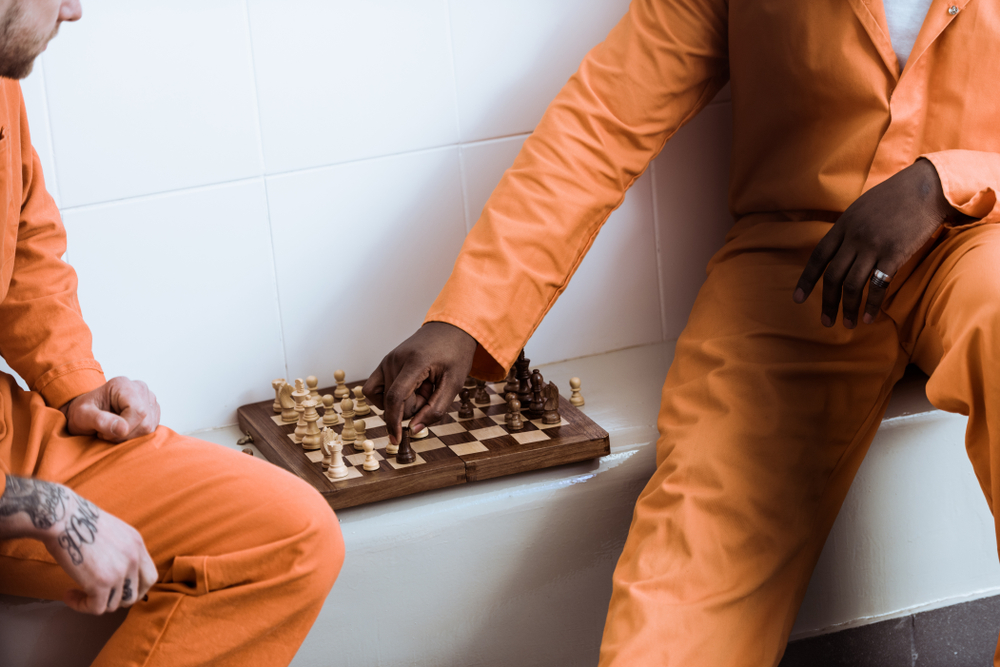
About the Chess for Freedom programme
The rights and opportunities of self-realization and development for people in imprisonment are essential prerequisites in order to consciously build their future after liberation. Access to training and learning, as well as to quality ways of socializing could give strong motivation to change for better.
Chess is a game that not only allows the inmates to spend a quality time and socialize in a smart and safe way, but also can serve for decreasing such common symptoms like depression, stress, and anxiety. Developing memory and logical thinking, improving concentration skills and imagination may foster their reintegration after liberation. Chess inspires self-motivation, develops the capacity to for-see consequences and demonstrates the success is a reward of hard work.
To support and promote this line of work, the International Chess Federation (FIDE) and the Cook County Sheriff’s Office (Chicago, USA) have signed a cooperation agreement and launched the “Chess for Freedom” programme. This project kicked off in May 2021 with an online conference and an exhibition tournament with four participant countries. Later on, in October, the first Intercontinental Online Chess Championship for Prisoners – a much larger competition with the participation of tens of prisons was held. The 3rd Intercontinental Online Chess Championship for Prisoners took place on October 11-13, 2023, on the International Day of Education in Prison.
In recent years, we have witnessed the successful introduction of chess in prisons through different educative programs in the USA, Armenia, Norway, Russia, England, Brazil, Italy and Spain, with very positive outcomes.
In prisons, just as in broader society, the impact of sport and games can be far-reaching. The experiences referred above demonstrate that chess improves behaviour, helping to reduce inmate violence and developing communication skills, while promoting positive use of leisure time. Chess also drastically improves the decision-making capabilities of a group of people that, very often due to the lack of opportunities and access to proper education, has ended up in jail after making a wrong choice in life. Besides, the game positively impacts the inmates’ overall health, fighting depression, stress and anxiety, and motivating them to change for the better.
The FIDE Social Commission has also launched a Chess For Freedom Network, where representatives from ongoing or aspiring CFF projects participate, and get peer access, review best practice examples, case stories and lessons learned, get invitations to workhops and seminars, and get help to start or reinvigorate own projects. If you want to participate in the network, just send an email to socialchess@fide.com, and you will be contacted.

